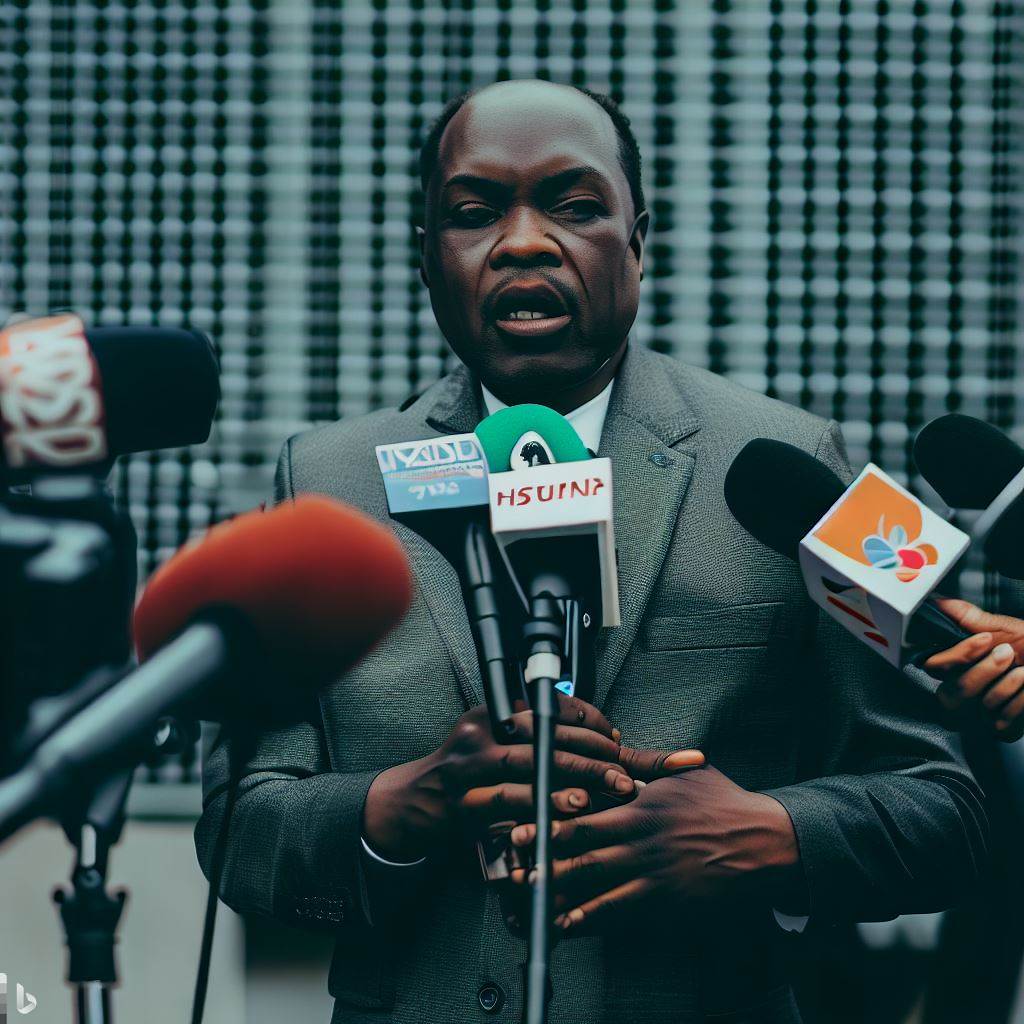Introduction
Press freedom, denoting the unobstructed right of journalists to relay news, is pivotal within a democratic framework.
This fundamental freedom fosters transparency, accountability, and civic engagement. Its absence denies citizens vital information, impeding their capacity to make knowledgeable choices.
However, this cherished liberty faces formidable challenges in contemporary times.
Technological advancements have birthed new concerns, such as the spread of misinformation and the erosion of trust in media sources.
Authoritarian tendencies in some regions lead to overt censorship and intimidation of journalists, curtailing their ability to report objectively.
Moreover, economic pressures within the media industry can compromise editorial independence.
In the end, safeguarding press freedom is imperative for upholding democratic values.
Addressing the aforementioned challenges requires a concerted effort from societies, governments, and media entities to ensure an informed and empowered citizenry.
Overview of Nigeria’s press freedom situation
Brief history of press freedom in Nigeria
- Nigeria gained independence from British colonial rule in 1960.
- During the early years, press freedom was relatively limited due to government control and censorship.
- Between 1966 and 1999, Nigeria experienced military rule, which severely curtailed press freedom.
- Journalists were often targeted, arrested, and censored for reporting on government corruption and human rights abuses.
- In 1999, Nigeria transitioned to civilian rule, bringing hopes of increased press freedom.
Current state of press freedom in Nigeria
- Despite being a multiparty democracy, Nigeria still faces significant challenges regarding press freedom.
- Journalists continue to face harassment, intimidation, and violent attacks for their work.
- The Nigerian government has enacted laws that restrict free expression, such as the Cybercrime Act of 2015.
- Political pressure and economic influence often hinder objective journalism.
- The Press Council established in 1992 is not fully independent and lacks enforcement power.
- Media organizations often face threats and legal actions, leading to self-censorship.
- The use of draconian laws like the Sedition, Criminal Defamation, and Terrorism Prevention Acts limit press freedom.
- Journalists’ safety is a concern as they face threats from state security forces, political actors, and criminal gangs.
- Online journalists and social media users also face increasing repression and surveillance.
Despite these challenges, Nigerian journalists and media organizations strive to maintain press freedom.
It is crucial for both the government and civil society to take necessary actions to protect and promote press freedom in Nigeria.
Factors contributing to Nigeria’s press freedom challenges
Government regulations and laws
- Restrictive legislation: Nigeria’s government has enacted laws that limit the freedom of the press.
- Media council regulations: The Nigerian press is also subject to regulations imposed by media councils.
Political interference and intimidation
- Attacks on journalists and media organizations: Journalists in Nigeria face physical attacks and their organizations are targeted.
- Threats and harassment: Politicians and influential individuals intimidate journalists to limit their freedom of expression.
Lack of transparency and accountability
- Impunity for crimes against journalists: Perpetrators of crimes against journalists often go unpunished, leading to a culture of impunity.
- Corruption within media organizations: Some media organizations in Nigeria are plagued by corruption, compromising their independence.
Press Freedom Challenges in Nigeria are prominently influenced by restrictive government regulations and laws.
These constraints hinder accurate reporting on crucial matters, as journalists face limitations.
Media council regulations have been implemented, further curtailing freedom of expression and news coverage.
This obstructs investigative journalism and comprehensive reporting.
The issue is exacerbated by political interference and intimidation, resulting in attacks on journalists and media outlets.
These assaults target those exposing corruption, criticizing officials, or handling sensitive topics. Consequently, the public’s access to information is compromised.
Threats from influential figures foster an environment of self-censorship, impacting the news agenda.
Lack of accountability allows crimes against journalists to go unpunished, deterring investigations into powerful figures.
Internal corruption within media organizations compromises their integrity and impartiality.
In short, Nigeria’s press freedom confrontations emerge from multifaceted origins. Restrictive laws, political interference, attacks on journalists, and internal corruption all contribute.
Addressing these issues is pivotal to nurturing an independent and robust press landscape.
Read: Spotlight: Women Journalists Making a Difference in Nigeria
Impact of press freedom challenges on Nigerian society
Suppression of freedom of expression
- The restriction on press freedom in Nigeria has led to the suppression of freedom of expression.
- Journalists, media organizations, and individuals are unable to freely express their opinions and ideas.
- The government imposes restrictions, harassment, and intimidation on journalists who criticize its policies.
- The suppression of freedom of expression hampers the development of a vibrant democracy in Nigeria.
Diminishing public access to reliable information
- Press freedom challenges in Nigeria have resulted in diminishing public access to reliable information.
- The government controls and censors media content, limiting the information available to the public.
- Journalists face censorship, self-censorship, and pressure to report favorably on the government.
- The lack of reliable information reduces transparency, accountability, and citizen participation in governance.
Negative implications for democracy, governance, and human rights
- Press freedom challenges in Nigeria have negative implications for democracy, governance, and human rights.
- A free and independent press is crucial for holding governments accountable and ensuring transparency.
- Restrictions on press freedom weaken the checks and balances in democratic systems.
- Without an independent media, corruption can thrive, and human rights abuses may go unreported.
In fact, the press freedom challenges in Nigeria have a significant impact on the Nigerian society.
The suppression of freedom of expression hampers the development of a vibrant democracy, as journalists and individuals are unable to freely express their opinions.
The diminishing access to reliable information restricts public knowledge and participation in governance, hampering transparency and accountability.
Furthermore, the negative implications for democracy, governance, and human rights emphasize the importance of a free and independent press in Nigeria.
Urgent measures are needed to address these challenges and safeguard press freedom for the betterment of Nigerian society.
Read: The Impact of Technology on Mixing Engineering in Nigeria

International response and attempts to improve press freedom
Involvement of international organizations and human rights groups
- Amnesty International has been vocal in condemning press freedom violations in Nigeria.
- Reporters Without Borders has consistently ranked Nigeria low in its World Press Freedom Index.
- International Federation of Journalists has called for stronger protection for journalists in Nigeria.
- United Nations Human Rights Council has pressured Nigeria to address press freedom concerns.
- Committee to Protect Journalists has documented numerous attacks on journalists and media outlets in Nigeria.
Campaigns and initiatives to promote press freedom in Nigeria
- Media Rights Agenda, a Nigerian NGO, advocates for press freedom through litigation and advocacy.
- Journalists’ Rights Defense Fund provides legal and financial support to journalists facing persecution in Nigeria.
- Media organizations in Nigeria have launched awareness campaigns to highlight the importance of a free press.
- Journalists’ associations have organized protests and demonstrations to demand better press freedom.
- Online platforms and social media have become avenues for Nigerian journalists to express themselves freely.
Influence of foreign aid and foreign policies on press freedom in Nigeria
- Some international aid organizations have made press freedom a condition for providing financial aid to Nigeria.
- Foreign governments have urged Nigeria to uphold press freedom as a fundamental human right.
- Media development programs funded by foreign organizations have trained Nigerian journalists on ethics and professionalism.
- Foreign embassies and consulates have issued statements condemning press freedom violations in Nigeria.
- International trade agreements may include provisions to safeguard press freedom in Nigeria.
Despite ongoing challenges, Nigeria’s press freedom situation has not gone unnoticed by the international community.
International organizations and human rights groups have played a crucial role in supporting Nigerian journalists and advocating for their rights.
Campaigns and initiatives within Nigeria have also contributed to promoting press freedom and raising awareness of its importance.
Furthermore, foreign aid, foreign policies, and international pressure have influenced the Nigerian government to address press freedom concerns.
While progress has been made, additional efforts are necessary to fully protect press freedom in Nigeria.
By working together, both domestic and international stakeholders can continue to uplift the voices of Nigerian journalists and ensure that press freedom thrives in the country.
Read: Starting a Journalism Career in Nigeria: A Guide
Steps to address Nigeria’s press freedom challenges
Advocacy for legal reforms and Freedom of Information Act implementation
- Engage in advocacy campaigns to promote legal reforms that protect press freedom.
- Urge the government to fully implement and enforce the Freedom of Information Act.
- Push for the decriminalization of defamation laws to prevent the harassment of journalists.
Strengthening media professionalism and self-regulatory mechanisms
- Encourage media organizations to establish self-regulatory bodies to uphold ethical standards.
- Enhance journalism training programs to improve the professional skills of media practitioners.
- Create platforms for media practitioners to exchange knowledge and best practices.
Encouraging public participation and media literacy
- Promote citizen journalism to amplify diverse voices and perspectives.
- Educate the public about media literacy to foster critical thinking and discernment of information.
- Organize workshops and seminars to enhance public understanding of journalism’s role in society.
Promoting international collaboration and solidarity
- Foster partnerships between Nigerian media organizations and international press freedom groups.
- Engage in dialogues and exchanges with other countries facing similar press freedom challenges.
- Create international support networks to provide resources and assistance when press freedom is threatened.
In essence, addressing Nigeria’s press freedom challenges requires a multi-faceted approach.
Advocacy for legal reforms, implementation of the Freedom of Information Act, and strengthening self-regulatory mechanisms will create an enabling environment for journalists to work without fear of harassment or prosecution.
Encouraging public participation and media literacy will empower citizens to critically engage with the media and hold them accountable.
Furthermore, international collaboration and solidarity will provide resources and support in the face of threats to press freedom. By taking these steps, Nigeria can strive towards a more democratic and free press.
Read: The Role of Journalists in Nigeria’s Election Coverage
Conclusion
Recap of press freedom challenges in Nigeria
Nigeria faces several challenges to press freedom. These include the use of restrictive laws to silence journalists, censorship, and harassment.
Additionally, violence against journalists and impunity for those who target them further hampers the free flow of information.
Importance of addressing these challenges for a democratic society
Press freedom is crucial for the functioning of a democratic society. It fosters transparency, accountability, and ensures citizens’ right to access accurate information.
By addressing press freedom challenges, Nigeria can strengthen its democracy and promote the well-being of its people.
Call to action for supporting press freedom in Nigeria
We must stand in support of press freedom in Nigeria. It is essential to advocate for the repeal of restrictive laws and the protection of journalists.
Promoting media literacy and supporting independent news organizations can also contribute to a thriving press environment. Together, let us champion press freedom as a fundamental pillar of democracy.




